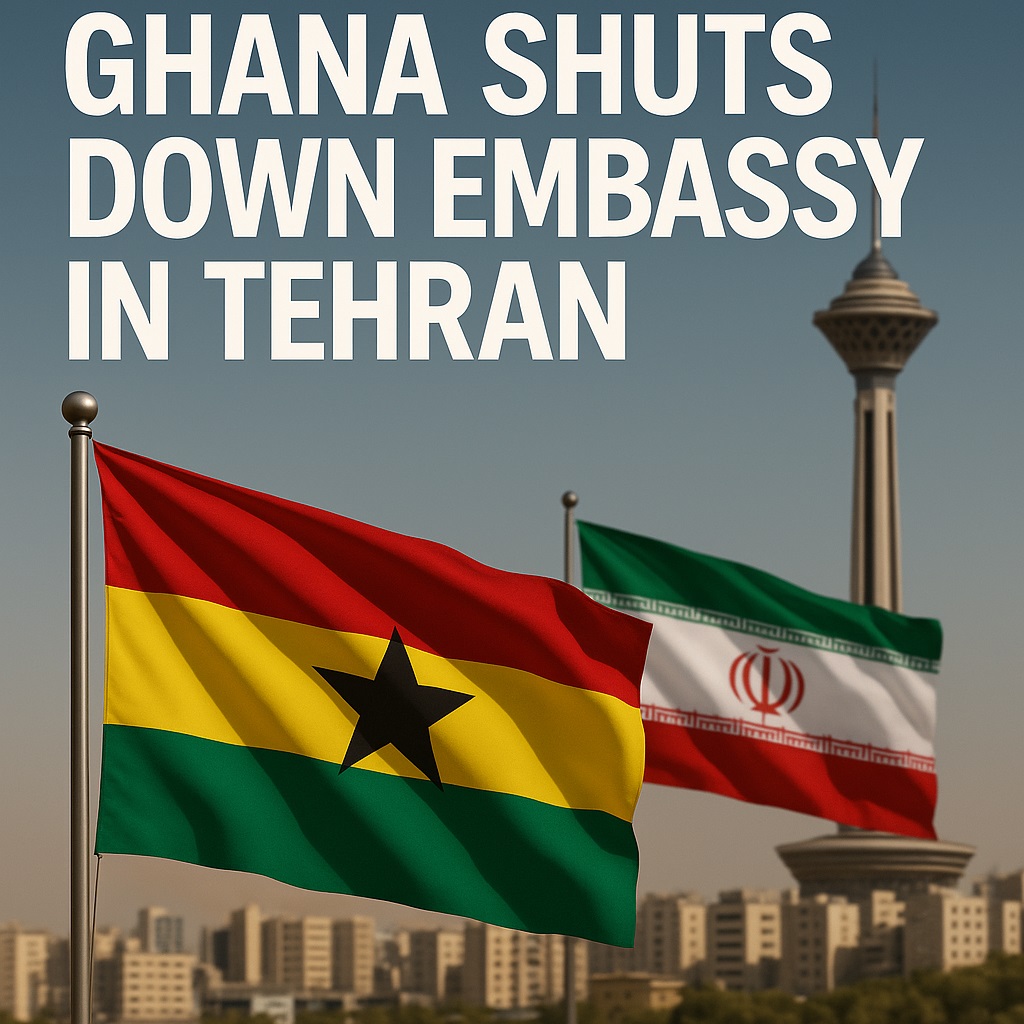Ghana Shuts Down Embassy in Tehran as Iran-Israel Conflict Escalates

The Government of Ghana has officially closed its embassy in Tehran and begun the evacuation of Ghanaian nationals from Iran, citing rising hostilities in the Middle East as the primary concern.
According to Foreign Affairs Minister Samuel Okudzeto Ablakwa, the decision follows growing instability in the region due to intensified tensions between Iran and Israel. In a press briefing held on Saturday, he confirmed that the embassy shutdown was a precautionary measure aimed at ensuring the safety of Ghanaian diplomats and citizens living in Iran.
“The lives of Ghanaians come first. Given the rising threat levels, we have activated contingency plans and are working with international partners to facilitate safe passage for our people,” Ablakwa stated.
This move aligns Ghana with other African nations that have similarly scaled down or suspended diplomatic operations in the Middle East. At least 72 Ghanaians are reported to have registered with the Embassy in Tehran prior to the evacuation announcement.
The Ministry of Foreign Affairs and Regional Integration noted that evacuation protocols had been prepared weeks ahead in consultation with the National Security Council. The Ghana Armed Forces are believed to be on standby to assist in any extraction efforts, should the need arise.
Though details remain classified for security reasons, multiple sources say arrangements are underway to route evacuees through safer corridors with support from the International Organization for Migration and Ghanaian missions in nearby countries.
The conflict between Iran and Israel has escalated dramatically in recent weeks, marked by cross-border missile attacks, targeted assassinations, and intensified rhetoric from both governments. Global powers, including the African Union and the United Nations, have called for restraint and diplomatic solutions.
Meanwhile, concerns have emerged about the impact of the embassy closure on Ghana-Iran bilateral relations. The two countries have traditionally cooperated in areas such as health, education, and petroleum technology. Analysts suggest that while safety comes first, diplomatic bridges should not be completely burned.
As the situation develops, the Ministry says it will continue to issue public updates and provide emergency support to any Ghanaians still residing in the region.



0 Comments
No comments yet, be the first to comment